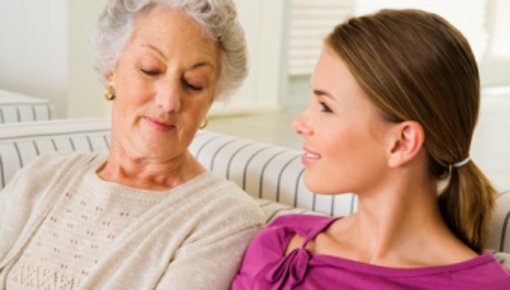It soon became clear that I needed further treatment
The year I found out what it was, I went to my doctor nearly every month and had four operations in total. When it was finally diagnosed I was really happy to have a name for my problem. My doctor was too. The fourth operation I had, which led to the diagnosis, was a very difficult operation. But I was still happy to know that there was an explanation for my pain and that it wasn’t all in my head.
The doctor had removed as much of the endometriosis tissue as he could. But it soon became clear to me that I needed further treatment. I had changed doctors and my new doctor told me something that was simply music to my ears at the time. She said, “I have something that will help you. I will artificially induce menopause in you for half a year by giving you injections. After that it will all be gone.” This last sentence really gave me hope.
The treatment with injections really affected me. Within three weeks I felt like an old woman. I wasn’t even 30 yet and I already felt like I was 70. I had difficulties climbing stairs, my joints ached and I experienced hot flashes. But during that time I had no endometriosis pain, so I put up with the side effects.
After the treatment I didn’t have any symptoms for about one year. Then the tissue started growing back and the pain returned. My doctor suggested that I have my womb removed. I was 29 years old at the time. I wasn’t prepared to give away my womb, and still feel the same about it now. I felt like the pain was much worse than it used to be before I had the treatment. That was really difficult to cope with mentally. I could still hear the doctor’s words in my head, telling me that the treatment would make it all go away. It was very disappointing for me. At that point I hadn’t yet realized that it was a chronic illness.
I am one of the women with endometriosis who suffer from pain every day. My family life and sex life were really affected by it. My partner and I stopped having sex. I would freeze straight away due to the fear of pain, and my partner was afraid of hurting me. The most difficult thing was that my partner didn’t talk to me about his feelings and fears. We started drifting apart after a while. I didn’t want to be touched, not even stroked. Everything was painful. It was a pretty extreme situation.
My partner had to be really patient and understanding. I have now learned to enjoy being intimate and feel sexual desire again. Together, we had to learn to live our sexuality in a different way. I still felt pain, but just talking about it helped. It became clearer what hurt and what didn’t, and he was less afraid. This really helped us to get physically closer again too.
I took a lot of painkillers. I was in pain every day so I took medication on a daily basis too. Eventually it was no longer enough. Women at work started making comments too. They’d say things like: “I don’t understand why you have such a problem with your periods. I have period pains too. They go away after half a day.” Then it all started getting worse: the pressure at work and from my family, as well as my guilty conscience toward my family. I was also let down by very close relatives, which I never would have expected. Then I had a mental and physical breakdown. At that point I realized how bad things had become and that they couldn’t get any worse. My husband and I sat down and had a serious talk. It became clear that if I didn’t do something for myself soon then it would happen again. Together with our family, we decided that I should take sick leave.

